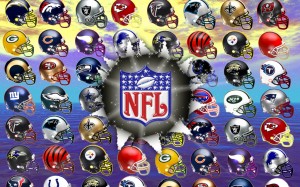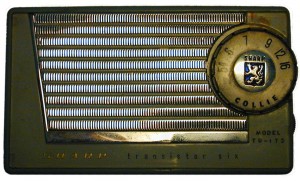 When you think of non-profits organizations, names like The United Way, The American Red Cross and the Susan B. Komen Foundation come to mind. What might surprise you is that the National Football League is also classified as a non-profit and are given tax-exempt status. How is this possible you ask?
When you think of non-profits organizations, names like The United Way, The American Red Cross and the Susan B. Komen Foundation come to mind. What might surprise you is that the National Football League is also classified as a non-profit and are given tax-exempt status. How is this possible you ask?
The IRS describes 501(c) (6) tax-exempt status this way…
Section 501(c)(6) of the Internal Revenue Code provides for the exemption of business leagues, chambers of commerce, real estate boards, boards of trade and professional football leagues, which are not organized for profit and no part of the net earnings of which inures to the benefit of any private shareholder or individual.
As you can see, the law only includes “Professional Football Leagues” which leaves Major League Baseball, The National Basketball Association and others sitting on the sidelines. So why did Washington agree to provide preferential treatment to the NFL?
It all goes back to the hey-days of the NFL/AFL Merger. Back in 1966, then NFL Commissioner Pete Rozelle was lobbying to obtain an antitrust exemption for the merger. The antitrust and tax exemptions were put into an undisputed bill and very few people noticed or complained at the time.
That was then, this is now. The NFL is starting to face pressure about their non-profit status, and the worst part for the NFL owners? It’s coming from a Republican Senator. Senator Tom Coburn who represents Oklahoma thinks the government is getting a “Raw Deal” and wants that to change.
A spokesman for the NFL said the league office itself “is classified as a not-for-profit under the tax code because the league office makes no profit.” He said the teams make the profits and they are taxed. This is true, but what he does not mention is that NFL owners don’t pay taxes on the “dues” they pay to belong to the league (an estimated $6 million dollars a year).
Their non-profit status also means they can skip out on paying other taxes because state and local governments usually exempt these organizations from state income and sales tax as well. This was a nice little bonus when the Super Bowl was recently held in Indianapolis because hotels and restaurants did not tax National Football League employees.
And guess what? The NFL actually loses money in a way that would make Enron proud. The NFL paid 8 of its top executives around $53 million dollars in 2009. It would seem the NFL goes out of its way to lose money so they can retain its non-profit status and allow the individual teams to be more profitable.
Now how much additional tax money governments are losing out on is open to debate; it may be a little, or it may be a lot. But when Washington continues to dance on the brink of default and gentle creatures such as Big Bird could be on the chopping block; the government might want to head into the instant replay booth to see if they need to over-turn the ruling on the field and change the 501(c) (6) tax-exempt status law.


